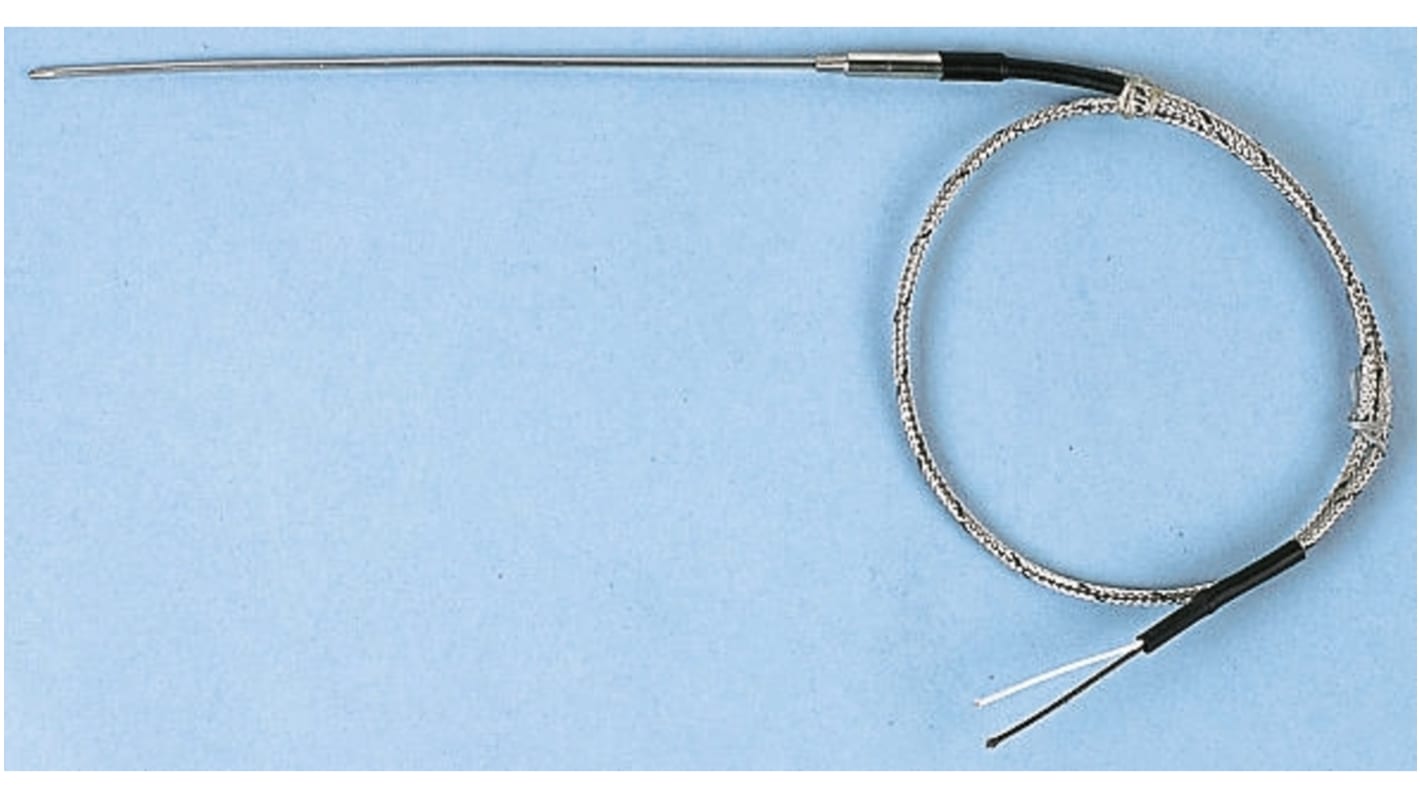RS PRO Type J Thermocouple 300mm Length, 2mm Diameter → +400°C
- RS庫存編號:
- 324-2500
- 製造商:
- RS PRO
可享批量折扣
單價 個**
TWD3,244.00
(不含稅)
TWD3,406.20
(含稅)
14 現貨庫存,可於6工作日發貨。*
* 交貨日期可能會根據您選擇的數量和交貨地址而變更。
訂單金額滿 TWD1,300.00 (未稅) 即可享受 免費 送貨服務
即時庫存查詢
單位 | 每單位 |
|---|---|
| 1 - 4 | TWD3,244.00 |
| 5 + | TWD2,670.00 |
** 參考價格
- RS庫存編號:
- 324-2500
- 製造商:
- RS PRO
- COO (Country of Origin):
- FR
RS Pro IEC Mineral Insulated Type J Thermocouple with Fixed Stainless Steel Sheath
From RS Pro a range of type J thermocouple temperature sensors or probes that conform to IEC 584 specifications. These thermocouple temperature probes have a durable construction and feature a 316 stainless steel mineral insulated flexible probe sheath that can be bent and formed to suit a wide range of applications. The cable has a fibreglass insulation and is surrounded by a durable 316 stainless steel braid. The ungrounded hot junction of these thermocouple probes means they are able to perform with a reduction in electrical interference
How does a Thermocouple Work?
A thermocouple is a sensor used to measure temperature in a range of different processes and consists of two wire legs made from different metals joined together at their two ends to form two junctions. The hot, or measuring junction is connected to the body whose temperature is going to be measured. The cold junction or reference junction is connected to a body of known temperature. When the measuring junction is placed on something hot a voltage or potential difference between this and the reference junction occurs. This voltage can then be converted into a temperature measurement using thermocouple reference tables. This process is also known as the Seebeck Effect
What is an Insulated Junction?
An insulated or ungrounded junction is where the thermocouple wires are welded together and fully covered by but insulated from the outer protective sheath, often by the use of mineral insulation. The advantage of this is that there is a reduction in electrical interference and a stable reading
What is Mineral Insulation?
Mineral insulation is used to insulate the thermocouple wires from one another and from the metal probe sheath that surrounds them. The sheath is filled with a highly compacted magnesium oxide powder that prevents the conductors from making contact with one another other than at the fixed junction. The high density of the mineral powder enables the thermocouple to have a rapid response as it promotes a fast heat transfer between the conductor and the sheath. Mineral insulation also helps to protect the thermocouple wire from environmental damage including corrosion, prevents electrical interference and allows the cable to be flexible whilst maintaining its mechanical strength
Key Features and Benefits
• Ungrounded hot junction for reduced electrical interference
• Mineral insulation for rapid response, flexibility and durability
• Conforms to IEC 584 standards
• Flexible, can be bent into shape for easy installation
• Robust glassfibre insulated cable with stainless steel braid
• Durable 316 stainless steel sheath for corrosion resistance
• Mineral insulation for rapid response, flexibility and durability
• Conforms to IEC 584 standards
• Flexible, can be bent into shape for easy installation
• Robust glassfibre insulated cable with stainless steel braid
• Durable 316 stainless steel sheath for corrosion resistance
Applications
The type J is a common type of thermocouple but has a smaller temperature range and a shorter lifespan at higher temperatures than the Type K but has the same reliability. Type J thermocouples are ideal for monitoring the temperatures of inert materials and in vacuum applications. Applications include heat processes such as the manufacturing of plastic and resin and in electrical furnaces
屬性 | 值 |
|---|---|
| Thermocouple Type | J |
| Probe Diameter | 2mm |
| Probe Length | 300mm |
| Probe Material | 316 Stainless Steel |
| Maximum Temperature Sensed | +400°C |
| Termination Type | Cable |
| Cable Length | 2m |
| Standards Met | RoHS Compliant |
| Response Time | 1 s |

